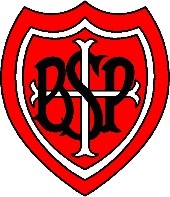History
At SBSP we follow the PKC History curriculum, which is knowledge rich. This means the knowledge children will gain has been carefully specified, ordered coherently and built over time. Knowledge, in the realm of history, means not only substantive knowledge of historical events, dates and people in the past, but also knowledge of substantive concepts in history (such as ‘empire’, ‘monarchy’ and ‘civil war’), and disciplinary historical concepts (such as evidence, causation, significance and interpretation).
SBSP's history curriculum allows children to develop a chronologically secure knowledge and understanding of local, British and world history. The substantive knowledge taught in the curriculum has been carefully chosen and sequenced using a largely chronological approach. Each unit of work should not be viewed as a stand-alone topic, but as a chapter in the story of the history of Britain and the wider world. In this sense, the chronological approach provides a solid framework, anchoring each unit within a wider narrative. Understanding in history requires an understanding of causation. Children will be able to understand the causes of significant national and global events, when they have some background knowledge of what happened before.
Knowledge of substantive concepts and disciplinary concepts have been interleaved across the curriculum, allowing children to encounter and apply these in different contexts. From year to year, unit to unit, lesson to lesson, the curriculum supports children in making connections and building upon prior substantive and disciplinary knowledge. The history curriculum is balanced to enable children to look in some depth at local, national and world history, encouraging children to explore the connection between significant events and people and how they have influenced the modern world. Each year, the children will study at least one unit of British history. The curriculum aims to help children understand how the past is constructed and contested.
Children begin by learning about what a historian does, looking at basic sources and simplified perspectives to develop an appreciation and understanding of what it means to be a historian. As their substantive knowledge grows, children will be able to ask perceptive questions, analyse more complex sources and begin to use their knowledge to develop perspective. Disciplinary concepts, such as continuity and change, cause and consequence and similarity, difference and significance, are explored in every unit, and children are supported to think outside of their current unit of work and apply these concepts across the curriculum. In addition to learning about British and local history, the children will also learn about the history of the wider world. These units cover fascinating ancient civilisations, the expansion and dissolutions of empires, and the achievements and atrocities committed by humankind across the ages. The curriculum aims to ignite children’s love for history, preparing them with essential knowledge for Key Stage 3 and beyond.
All history is worth studying, but as we do not have the time to cover everything, the units have been carefully chosen to cover as wide-ranging content as possible. The curriculum aims to introduce the children to a wide variety of men, women and children from the past; from the widely venerated, to the lives of the less well-known who offer us a rich insight into life at the time. SBSP's history curriculum aspires to create curious and knowledgeable young people, who hold a deep understanding and appreciation of the discipline of history and are able to sift and weigh evidence to begin to formulate their own viewpoints and perspectives of the world.
